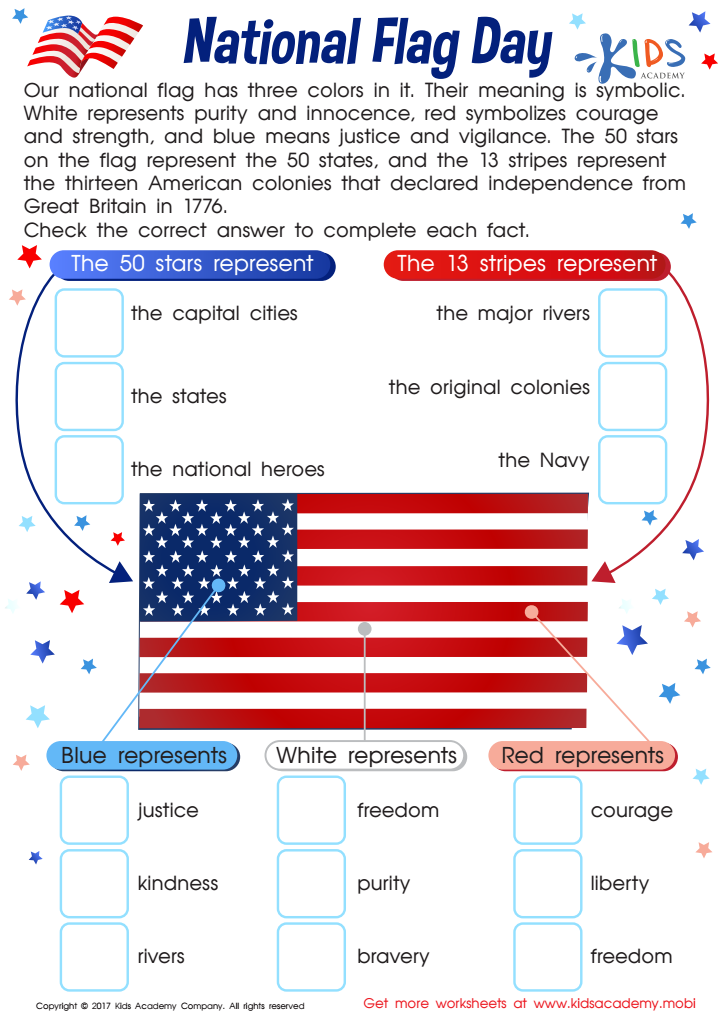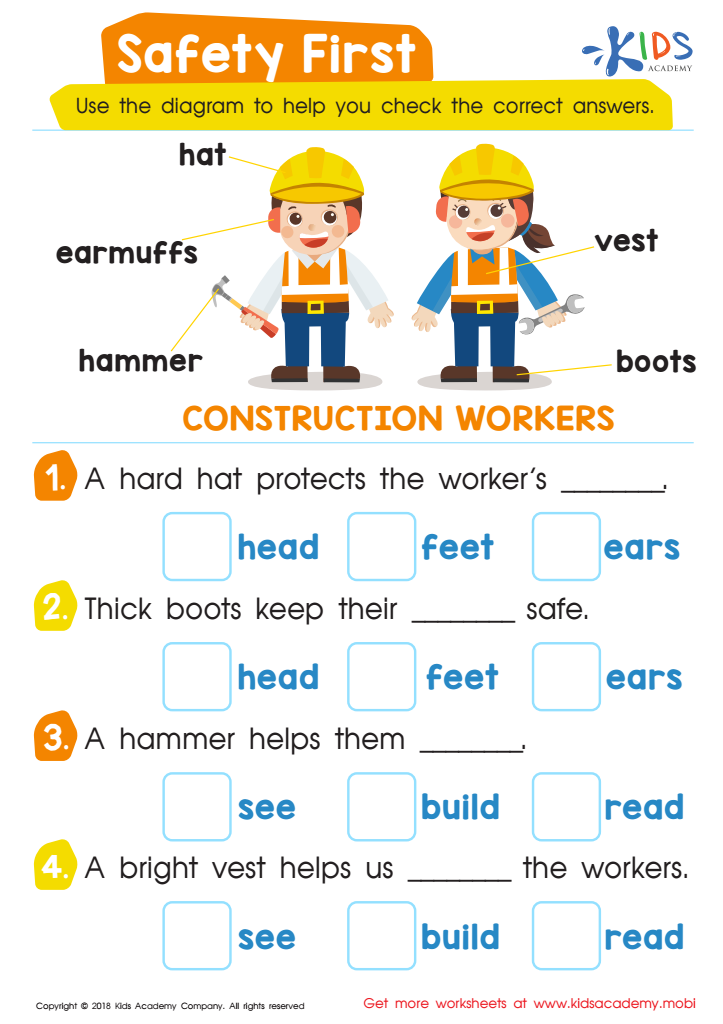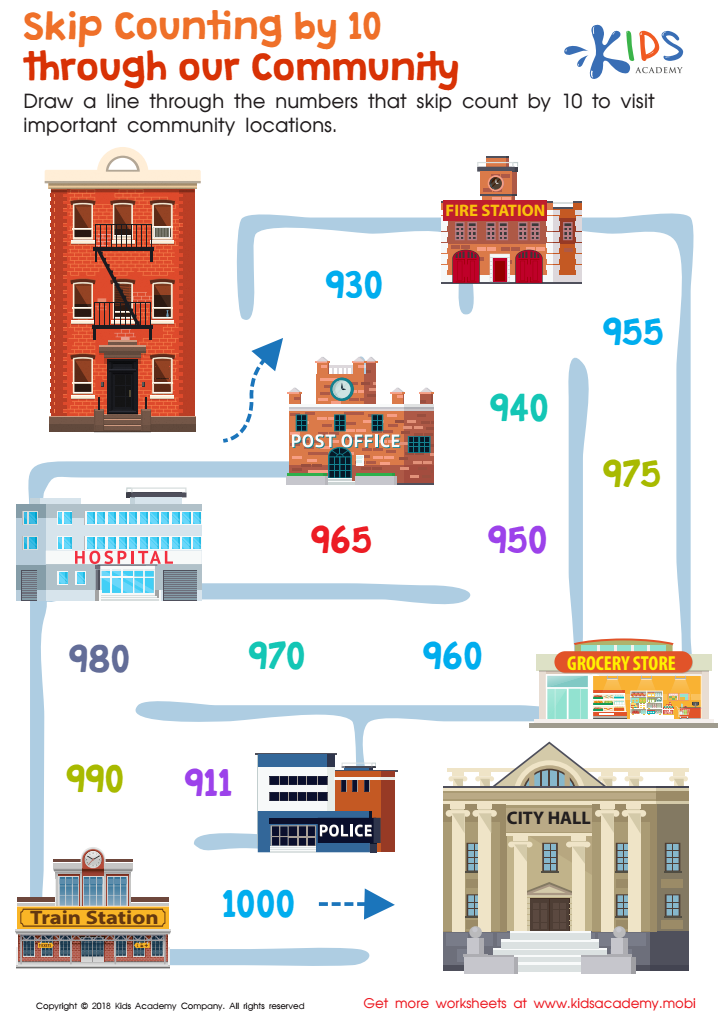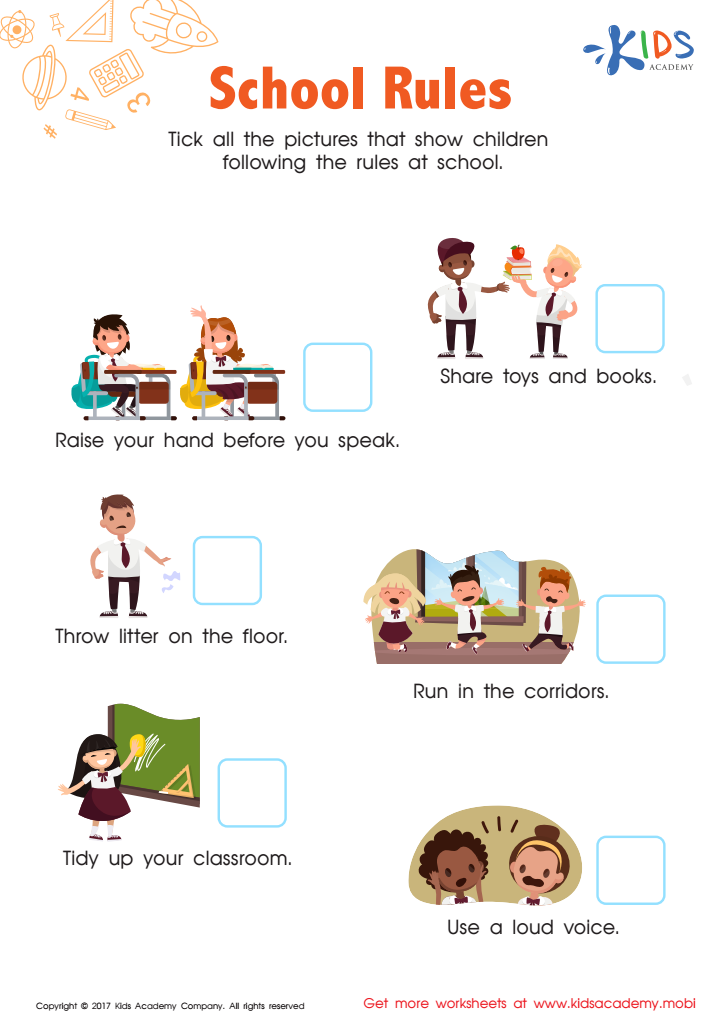Following instructions Social Studies Worksheets for Ages 3-7
7 filtered results
-
From - To
Discover a fun and engaging collection of Following Instructions Social Studies Worksheets designed for children ages 3-7. These interactive printable resources help young learners develop essential listening and comprehension skills through simple, age-appropriate tasks. Each worksheet encourages kids to follow directions, enhance their critical thinking, and gain familiarity with fundamental social studies concepts. Perfect for home or classroom use, these worksheets make learning enjoyable while fostering independence. Support your child’s educational journey with our thoughtfully crafted materials that stimulate curiosity and promote a love for learning. Explore our extensive range of worksheets and watch your little ones thrive in their social studies education!


Happy Diwali Printable


US National Flag Day Worksheet


Safety First Worksheet


Skip Counting by 10 Through Our Community Worksheet


Playground Worksheet


School Rules Worksheet
Following instructions in Social Studies is crucial for children aged 3-7 as it lays the foundation for their social awareness, critical thinking, and cooperative skills. At this developmental stage, children are like sponges, eager to absorb information about the world around them. When they learn to follow instructions in Social Studies, they not only gain knowledge about their community, culture, and history, but they also practice essential listening and comprehension skills.
For parents and teachers, emphasizing the importance of following instructions helps nurture accountability and responsibility in young learners. It teaches children how to navigate group settings—whether in the classroom or at home—by understanding the necessary steps to complete a task. This, in turn, fosters respect for authority and develops a sense of belonging within a group.
Moreover, engaging children in Social Studies through structured activities enhances their ability to appreciate diversity and work collaboratively. These early experiences encourage a sense of empathy towards others and reinforce positive behaviors. Overall, supporting children in following instructions during Social Studies cultivates informed, respectful, and conscientious individuals who contribute positively to society. By valuing this skill, parents and teachers empower children with the tools they need for lifelong learning and civic participation.

 Assign to My Students
Assign to My Students























